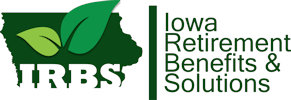The Greatest Wealth Killers in America —and How to Protect Your Money
The Crucial Role of Financial Representatives in Retirement
Posted by Ethan Ball
Serving Cedar Rapids, Iowa, and Surrounding Areas.
The Greatest Wealth Killers in America—and How to Protect Your Money
Let’s face it: keeping your wealth intact isn’t always easy. Between emotional decisions, market swings, taxes, and hidden fees, there’s no shortage of things trying to chip away at your hard-earned money. And sometimes, the biggest wealth killers aren’t glaringly obvious—they’re subtle, sneaky, and they slowly drain your savings without you even noticing.
The good news? You can protect yourself from these financial pitfalls. Today, we’re breaking down the greatest wealth killers in America and sharing simple steps to safeguard your money and future.
1. Emotion: The Quiet Saboteur
We’ve all been there—selling in a panic when the market dips or buying into the latest “hot stock” because it seems like a sure thing. Emotional decisions can wreak havoc on your portfolio, often leading to buying high and selling low.
How to Protect Yourself:
• Take a pause before making any big moves.
• Stick to your long-term financial plan—trust the process!
• Consider working with an advisor who can help you avoid emotional reactions.
2. Over-Diversification: Spreading Too Thin
You’ve probably heard the phrase, “Don’t put all your eggs in one basket.” And while diversification is key to a good portfolio, it’s possible to overdo it. Owning too many investments can water down your returns and make managing your portfolio unnecessarily complicated. For example, holding multiple mutual funds with overlapping assets might feel safe but could hinder growth.
How to Protect Yourself: 
• Diversify with intention—quality over quantity.
• Regularly review your portfolio to make sure it aligns with your goals.
3. High Fees: The Sneaky Drain on Your Wealth
High fees might not seem like a big deal at first glance, but over time, they can take a massive bite out of your savings. Whether it’s expensive mutual funds, advisor fees, or transaction costs, those little percentages add up.
How to Protect Yourself:
• Review your investment statements and ask about fees
• Work with an advisor who’s transparent about their costs
4. Not Rebalancing: Letting Things Drift
Life happens, and so does portfolio drift. Over time, certain assets may outperform others, throwing off your original investment mix. Without rebalancing, you could end up taking on more risk than you intended.
How to Protect Yourself:
• Schedule regular portfolio checkups (annually is a good start).
• Rebalance your investments to maintain the right mix of risk and reward.
5. Market Risk: Riding the Roller Coaster Without a Plan
The market can feel like a roller coaster—exciting during the climb, terrifying during the drops. While market risk is unavoidable, not having a plan in place can make those downturns a lot scarier than they need to be.
How to Protect Yourself:
• Diversify your portfolio to spread out risk.
• As you approach retirement, shift toward more stable investments.
• Explore tools like annuities to add a layer of guaranteed income.
6. Taxes: Paying More Than Your Fair Share
Nobody likes paying taxes, but ignoring tax planning can cost you big time. Whether it’s not using tax-advantaged accounts or waiting too long to plan for Required Minimum Distributions (RMDs), Uncle Sam has a way of taking more than his fair share.
How to Protect Yourself:
• Max out contributions to tax-advantaged accounts like 401(k)s, IRAs, and HSAs.
• Consider a Roth IRA conversion to set yourself up for tax-free growth.
• Work with a tax advisor to create a withdrawal strategy that minimizes taxes.
• Have an RMD plan.
7. Procrastination: The Wealth Killer You Don’t See Coming
One of the sneakiest ways to lose wealth? Doing nothing at all. Whether it’s delaying saving for retirement, not paying down high-interest debt, or avoiding estate planning, procrastination can quietly derail your financial goals.
How to Protect Yourself:
• Start small if you have to but start now. Even small steps add up overtime.
• Set clear financial goals with deadlines—and stick to them.
• Don’t be afraid to ask for help if you feel stuck.
Key Takeaways: Take Action to Protect Your Wealth
Protecting your wealth is more than just making good investments—it’s about avoiding the traps that can quietly erode your savings. By staying aware of these common wealth killers and taking steps to address them, you can build a financial future that’s not only secure but also stress-free.
Remember, the greatest wealth isn’t just money—it’s peace of mind. Ready to take control of your finances? Here’s your game plan:
1. Get Educated: Knowledge is power when it comes to protecting your money.
2. Work With Experts: A financial advisor or tax professional can save you time, stress, and money.
3. Plan Ahead: Whether it’s tax planning, retirement saving, or rebalancing, being proactive always pays off.
4. Start Small, Start Now: Whether it’s rebalancing your portfolio or setting up a Roth IRA, small steps lead to big results over time.
5. Stay the Course: Don’t let short-term noise or emotional decisions derail your long-term goals.
6. Review Regularly: Make a habit of checking in on your finances to ensure everything is aligned with your goals.
Remember, your wealth isn’t just about money—it’s about creating security and freedom for you and your loved ones. Don’t let these sneaky killers steal your future. Start protecting your wealth today. Simply Click Here to Contact Us and we’ll touch base with you to get something scheduled. You can also email us directly at info@iowaretirementsolutions.com or by phone at 319-423-3332. Whenever you need us, we’re here for you!
If you’re unsure, and preparing for retirement in Cedar Rapids, consider working with a trusted financial professional at Iowa Retirement Benefits & Solutions who can help you navigate these challenges and keep your investment strategy on track.
Investment advisory services are offered through Fusion Capital Management, an SEC registered investment advisor. The firm only transacts business in states where it is properly registered or is excluded or exempted from registration requirements. SEC registration is not an endorsement of the firm by the commission and does not mean that the advisor has attained a specific level of skill or ability. All investment strategies have the potential for profit or loss.




